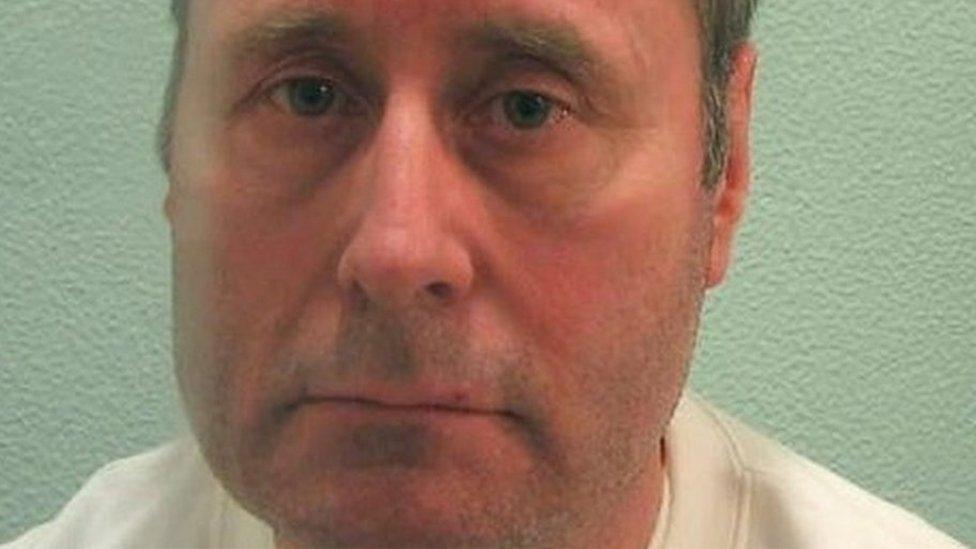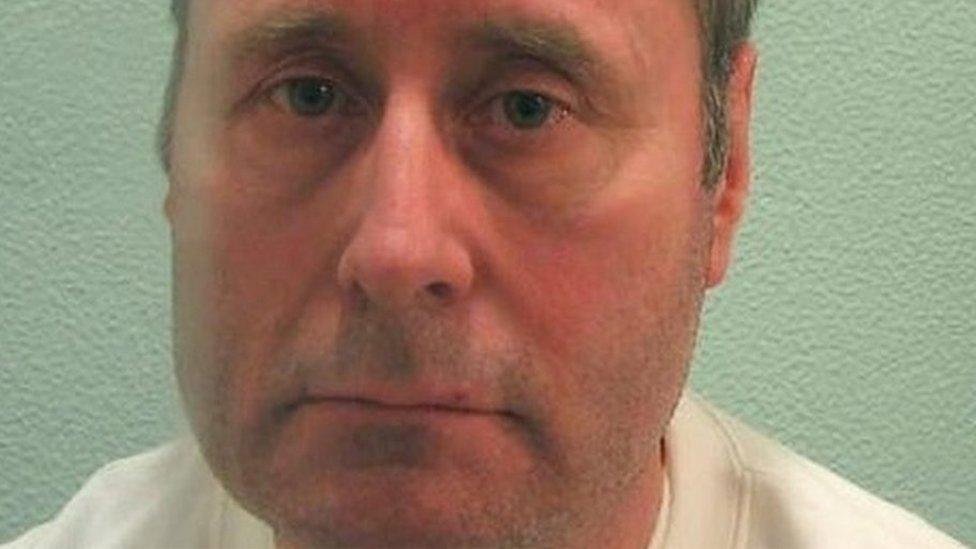Minister changes parole challenges after Worboys case
- Published

The decision to simplify challenges to a violent offenders' release comes after controversy over the potential release of black cab rapist John Worboys in 2018
Victims of crime in England and Wales will be given new rights to challenge the release of violent offenders, Justice Secretary David Gauke has said.
Instead of having to go to court to contest Parole Board decisions, victims will be able to apply to the Ministry of Justice to appeal against release.
The change follows an outcry last year after the so-called black-cab rapist John Worboys was granted parole.
That decision was overturned by the High Court in March 2018.
It is hoped the new powers given to victims will simplify costly and time-consuming court challenges to Parole Board decisions.
In November the board ruled that Worboys, who is now known as John Radford, must stay in prison.
Some of the reasons given for refusing the rapist's parole were his "sense of sexual entitlement" and need to control women.

John Worboys: The cabbie who preyed on young women
Victim: 'The police assumed I was some drunk'
Black-cab rapist Worboys, 61, was convicted of 19 offences against 12 women in 2009 at Croydon Crown Court and ordered to serve at least eight years in jail.
The following year police said a number of women had come forward and that his alleged victims now numbered more than 100.
Worboys would win passengers' trust before uncorking miniature bottles of champagne.
Little did they know the cheap Tesco bubbly was laced with date-rape drug Temazepam, or over-the-counter sleeping medication, from the "tool-kit" he kept in the passenger footwell.

Challenges to a person's release will only apply to the most serious offenders, and will have to be launched within 21 days of victims being notified of the decision.
Mr Gauke said: "This landmark reform will for the first time empower victims to hold the Parole Board to account for its decision and help restore public confidence in the important work that it does."
Mary Mason, chief executive of Solace Women's Aid, welcomed the new powers but said: "It's yet another piecemeal reform of a system which is deeply flawed."
"What we want to see is much more root and branch look at the whole of the system about rape and sexual assault."
Ms Mason said currently victims of rape and sexual assault were often not told their abuser was being released.
"All sorts of things happen which means they are not aware that they have actually been released, and so they aren't able to take safety measures," she said.
The new system will apply to indeterminate sentence prisoners (ISPs), like those serving a life sentence, or people jailed under imprisonment for public protection (IPP).
Worboys was sentenced under IPP, where a criminal is jailed for an indeterminate period until a Parole Board judges they no longer pose a risk to the public.
The system would also apply to those serving extended sentences.
The Ministry of Justice said the challenge threshold would be similar to that of a High Court judicial review, which will focus on "illegality, irrationality and procedural unfairness".
A request would first be considered by the Prison and Probation Service, which could be passed to a Parole Board judge who could order a panel to review its decision, or order a fresh hearing.
- Published19 November 2018

- Published4 January 2018

- Published28 March 2018
